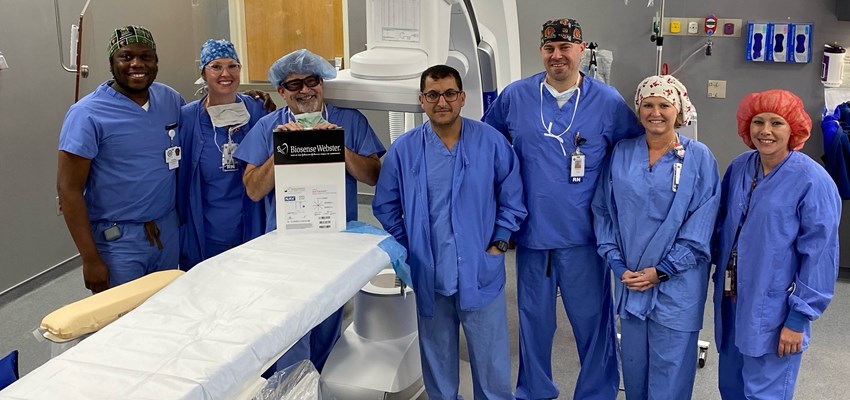Cardiologists at Marshall Health and St. Mary’s Regional Heart Institute are the first in West Virginia to use a new technology and mapping catheter to treat patients with complex cardiac arrhythmias.
Electrophysiologist Khalid Abozguia, a professor of cardiovascular services at the Marshall University Joan C. Edwards School of Medicine, and his team successfully used new technology to achieve better visualization and access to the heart, improving the success rate of cardiac ablation procedures.
The first cases using this technology were performed in April at St. Mary’s Regional Heart Institute and have shown excellent results for patients.
“During the procedure, a small device called a watchman will be implanted in a structure we call the left atrial appendage of the heart,” Abozguia said. “And we found the evidence that suggests that this device effectively seals off the appendage, which leads to a reduction in the risk of a blood clot and potentially causing a stroke without the need to take a blood thinner, long-term.”
Cardiac ablation is a procedure that scars tissue in the heart to block irregular electrical signals to help heart rhythm problems.
“Cardio neuro ablation is a groundbreaking procedure, specifically for a young patient who experienced a fainting episode commonly known in the medical field as syncope, it tends to be related mainly to overactive activation of one of the nerves we call vagal nerve,” Abozguia said. “Traditionally, these patients if they don’t improve despite lifestyle, adjustment or medication, they may end up needing a pacemaker to prevent these fainting episodes. However, cardio neuro ablation offers an alternative approach in my opinion, even though this is still early days for this procedure.”
Appalachia Health News is a project of West Virginia Public Broadcasting with support from Charleston Area Medical Center and Marshall Health.
